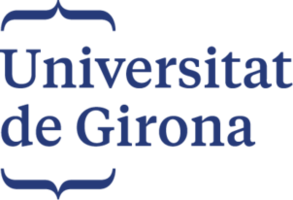
The University of Girona (UdG) is a public higher education institution located in Girona city and has been part of the Catalan public university system since 1992. Deeply rooted in Catalonia and the Catalan culture, the UdG is one of the primary economic and cultural motors of the region, while simultaneously pursuing a vocation of universality and openness to all traditions and cultures. The UdG is devoted to excellence in teaching and research that strives to contribute to the development and progress of society through the creation, transmission, dissemination and review of knowledge related to sciences, technology, humanities and arts. Research at the UdG is carried out in more than 100 research groups associated with 22 departments and 12 research institutes. A considerable part of this research is conducted in international contexts, where the UdG has gained wide experience in the management and coordination of international and European grants. The UdG has signed the “Charter for Higher Education 2014-020” to be able to apply and/or participate in the “Erasmus+ EU programme for education, training, youth and sport” and has signed a commitment to welcome and supports the recommendation of the European Commission 2005/251/EC on “The European Charter for researchers” and “The code of conduct for the recruitment of Researchers”. The research group from the University of Girona that is going to be involved in the project is UdiGitalEdu (http://udigital.udg.edu). Its team develops projects in the fields of Education, Technology and International Development with a multidisciplinary approach and a focus in social inclusion; team members have very different research backgrounds, from both the Science&Technology and the Humanities. UdiGitalEdu designs learning experiences for children and young people by combining Technology, Science and Art, with the purpose of encouraging creativity, critical thinking and teamwork. The group especially focuses on newly arrived migrant children and underserved communities. The way UdiGitalEdu understands learning is strongly influenced by names like Dewey, Piaget, Vygotsky, Freire, Montessori, Canals, Papert and Resnick. Its model is inspired by learning theories such as Social Constructivism, Constructionism or Connectivism, and also by educational approaches and modern movements such as Connected Learning and the Maker Culture. Global Citizenship Education and Changemaker Education are also pillars of all UdiGitalEdu initiatives. During the past nine years UdiGitalEdu has developed several projects to promote social inclusion by designing creative learning activities for disadvantaged schools. The Erasmus + projects “InventEUs, Fostering inventionbased collaborative learning for social change” 580325-EPP-1-2016-1-ES-EPPKA3-IPI-SOC-IN) and “Early Mastery- 21th century literacy- Learn2Code & Code2Learn. How to playfully motivate school kids to master computer programming” (2014-1-ESO1-KA201-004462) were both led by UdiGitalEdu. The biggest part of the research performed in the group is based on qualitative methodologies in order to deepen phenomena by obtaining information from principal actors and participants (professionals, PWID, families, etc.). Qualitative methodologies are used with the aim of making research also in inclusive way; so, interviews, focus groups and visual methods (photovoice, drawings and photographs) are exploited in order to promote active participation into research. Quantitative methodology is also used when necessary, depending on the research aims
